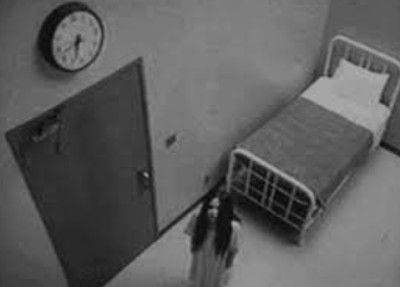You’re Crazy
“You’re crazy!” or “Are you crazy?” said rhetorically
should cause little harm. I say should,
because, if the utterance is directed to a person whose positive self-image isn’t
confidently established, then anxiety can arise. Why? Who would like to be seen
as unable to distinguish between the real and the illusory world? Such a person could easily
be misled or worse deceived. Such a child-like-minded person would be in need
of a caregiver, a long-term burden. That’s hardly a prospect that one would
welcome.
Admitting that you have a mental health issue is
difficult. In a recent news article Prince Harry admitted that for 20 years he
struggled with grief over the death of his mother, Diana, Princess of Wales. At
first he resisted the encouragement of his brother and friends to seek
professional help. When he did seek help, he learned to talk honestly about his
feelings. Then he was been able to put “blood, sweat and tears” behind him. He
now shares his experience in hopes of breaking the stigma of one experiencing mental health
issues.
While Prince Harry’s revelation appeared in the news
this year, eight years earlier I met a person I call Jill. Her intermittent
frustrated behavior caused many people to avoid her. Because I had come to know
her during a more relaxed time in her life, I could accept her, “warts and
all.” My acceptance also permitted her to reveal a bit of her perceived dark
side. The clouded insight gained from a peaked into her past explained her
hypersensitivity. The problem was, even after more than twenty years, only a little could be shared. Revealing more of her guarded past was too
painful. Healing was partial. More time was needed but not provided.
|
|
In my novel, Baggage burdens. After
Jill runs away from home she fears that she will be seen as unable to grasp
reality. The reader sees a number of times when Jill fears someone else may
become aware of her mental struggles. It’s too much for her.
Jill is homeless after
running away from home.
“Jill,”
repeats Mrs. Robertson. “Would you please give me your parents’ names and phone
number?”
‘I
can’t sound like a crazy emotional kid.’ Not trusting her voice Jill slowly
shakes her head.
“I
have to be able to tell your parents that you’re safe. That’s part of
respecting the feelings of one of the parties in a conflict.”
Clearing
her throat Jill prepares to reinforce her position. Speaking in an obviously
controlled voice she declares, “I will not go home again under any
circumstances.”
Jill has recently lost her baby.
“I
don’t know what I’ve done that’s causes you not to trust me. Maybe, somewhere,
some time, you’ll tell me. But I want you to get well. I want you to be that
vibrant wonderful woman I married.”
Joseph looks up to see Jill studying him.
“I
want you to consider talking with Rebecca. She’s really a very nice person. You two used to get along so well. I know for some reason you’re not too comfortable
with her, but she’s known other mothers who’ve lost their baby. I think she can
be of help.”
Jill frowns.
“If
you can’t accept that source of help, then consider seeing your doctor. The
hospital physician recommended it. Remember?”
“No.”
Jill’s blunt abrupt answer shocks Joseph. ‘See the doctor and he’ll probably
send me to a therapist. I’m not going to put myself under some one else’s
control. Never,’ she promises herself. “I’m not crazy. I don’t want anyone to
start thinking I am.”
Jill has had a nightmare.
Finally
Jill shoots back. “Damn you devil. Leave me alone. Leave me alone.”
Jill’s
shouting awakens Joseph. His nudging doesn’t wake her. Her body sags as he
lifts her. She crawls out of her nightmare, fingers digging into Joseph’s arms
anchoring her to reality. She cries, “No. No. Not real. Not real.”
Joseph
holds her close until her repeated denials subside. The intensity with which
she hangs on to him surprises him. When he determines she can actually
understand him, he asks, “What’s wrong? What’s not real?” Worry creases
Joseph’s face.
Jill
wonders how much of her nightmare she has exposed. Strength returns. Fear
rises. ‘Is Joseph going to question my sanity?’ She dismisses telling him about
the male voice. ‘For sure he’ll think I’m crazy.’ She asks, “where’s Amber,
Sarah?”
Jill tells
Bill about her recurring nightmare.
The
moment the words escape, Jill regrets it. The door is now opened to admitting
she hears a male voice.
‘He’ll
think I’m crazy,’ she predicts.
Bill’s
patient silence convinces Jill to test Bill’s acceptance. Little by little Jill
reveals the presence of a damning male voice. When Jill admits the male voice
has haunted her for years, Bill sits up alert like a guard dog in the house who
heard approaching footsteps outside.
“Does
the voice threaten?”
“It
accuses me. And sometimes it predicts, like last night.”
He
asks, “Have you shared this experience with anyone else?”
“Are
you kidding! And have someone think I’m crazy.” After a moment she asks, “You
don’t think I’m crazy, do you?”
haiku capsule:
a nightmare exposed
please, I’m not losing my mind
don’t abandon me.
Next blog:
How Can You Trust Someone?

No comments:
Post a Comment